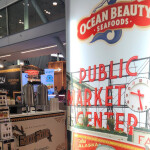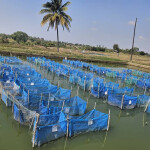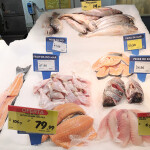While environmental sustainability certainly topped the international seafood agenda throughout the first 15 years of the current century, today, the supply chain’s No. 1 concern relates to social and ethical issues.
This elevation was initially prompted by The Guardian newspaper’s six-month investigation in 2014 that found large numbers of men were being held against their will and put to work on fishing boats off the coast of Thailand. It was established that this particular case of modern slavery was directly linked to shrimp farming and that a lot of the end products were being sold around the world in leading supermarkets.
Subsequent exposes have found further examples of labor and human rights abuse in the seafood supply chain, including human trafficking, child labor, debt bondage, forced labor and slavery, and not just in Thailand.
Roger Plant, ethics consultant and author of the new report, “Ethical issues impacting the UK seafood supply chain,” published by Seafish, told last month’s World Seafood Congress (WSC) 2015 in Grimsby that slavery at sea was now recognized as a serious concern for the seafood industry everywhere.
Though the main focus has been on Thailand, stakeholders must look beyond that country’s borders, including scrutinizing activities in the United Kingdom, he said. Indeed, U.K. Government figures estimate there could be as many as 13,000 people who remain trapped in modern-day slavery in Britain. They include women forced into prostitution, domestic staff who are imprisoned, and people forced to work in fields, factories and on fishing boats.
Plant also stressed that the Modern Slavery Act 2015, launched in the United Kingdom in March, will have major implications for the seafood industry.
The new act has made slavery a specific offense, and people traffickers now face the prospect of life jail sentences, instead of the previous maximum of 14 years. It also allows traffickers’ assets to be seized and given to victims as compensation payments.
Furthermore, from this month, all companies with a turnover of GBP 36 million (EUR 49 million; USD 55.1 million) or more doing business in the United Kingdom with supply chains elsewhere in the world are obliged to report on what they are doing to ensure their business and supply chains are free from slavery by publishing an annual slavery and human trafficking statement.
Each company must publish its first statement before the end of its current financial year. In this statement, it must describe the steps it has taken in its supply chain or its own business, or it must disclose that it has taken no such steps. Essentially, it must say what that business is actively doing; it doesn’t necessarily have to give a clean bill of health.
It is estimated that more than 12,000 companies exceed the GBP 36 million turnover threshold.
There are, of course, several seafood companies that fall into this bracket and the implication for many of those businesses is that they will have to delve into each individual product’s chain and follow it right back to the beginning to verify whether slavery is an issue. In the case of aquaculture products, that means analyzing the fishmeal chain too.
Stephen Oswald, CEO of Bidvest Fresh, which trades as Direct Seafoods, told SeafoodSource that he believes seafood companies should be looking to go a step further than detailing what if any measures they are taking. Instead, he wants to see the industry ensure slavery and human trafficking is fully eliminated from the supply chain.
“It’s important that we continue to show leadership. In terms of sustainability and addressing environmental challenges, the seafood industry has come a long way in the last 10 years. Going forward, it’s clear to me that all businesses need to dramatically expand their sustainability scope and incorporate a comprehensive social-ethical plan to rid our supply chain of these abhorrent practices. As a CEO, I know this won’t be an easy process, but it needs to be done,” said Oswald.
“It is a massive undertaking to guarantee your whole supply chain,” confirmed Laky Zervudachi, director of sustainability and epicurean at Direct Seafoods. “All one can really do is get started on that road.
“We will need to have published our statement by our year-end in June 2016. Our aim, however, is to have it in place much sooner and our legal team is currently working with the Ethical Trading Initiative (ETI) on our statement as well as ensuring we give the right response to related queries in the meantime.”
Six months ago, Direct Seafoods became the first seafood supplier to the U.K. catering trade to join the ETI, and Zervudachi said the business will use the support of the alliance to move the statement process forward, particularly with regard to better understanding what ethical auditing is, who can conduct these audits and what sort of questions they should be asking.
At the moment, this is a grey area for everyone, he said.
“For example, the Global Aquaculture Alliance’s (GAA’s) Best Aquaculture Practices (BAP) certification program does take on some social-ethical auditing, and if we are importing BAP 4-star shrimp then I would hope that the social auditing is done for us. But ultimately, we have to take a degree of responsibility and do some of it ourselves. We can’t take everything for granted.
“That’s why I think we are heading toward a point whereby everything in aquaculture will need to be certified through a third-party audit.”
While Zervudachi expects the route to fulfilling Direct Seafoods’ statement obligation to be “long and challenging,” he also believes that membership of the ETI has paved at least part of the way. It has also laid the groundwork for an ethics team to operate within the business.
As a Foundation Member of ETI, Direct Seafoods is expected to put in place policies, resources and strategies needed to develop a credible ethical trading program. Membership also requires it to improve working conditions throughout its supply chain through the adoption of an ETI Base Code of labor practice and to deliver a comprehensive report after 18 months of membership that describes the measures being taken.
Zervudachi also hopes that membership of the ETI will allow Direct Seafoods to hang on the coattails of some of the big retailers who have been involved in the alliance a lot longer – to get some support through open dialogue and then “better understand the problems that are out there and see some of the solutions that are available.”
Alongside ETI, he said Seafish’s Seafood Ethics Common Language Group (SECLG), which was set up last year, has been proving “elucidating” in terms of what is going on in the main production regions around the world to tackle unethical practices.
“It has been brilliant in pulling a lot of important intelligence together and sharing it among stakeholders to create much-needed common understanding,” said Zervudachi.






